
All images courtesy of O’Donnell Media Group
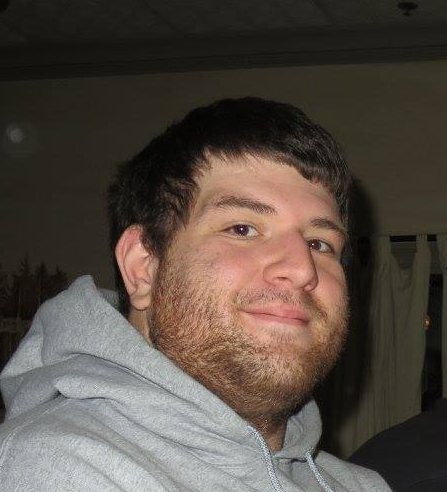
By Joe O’Brien
[email protected]
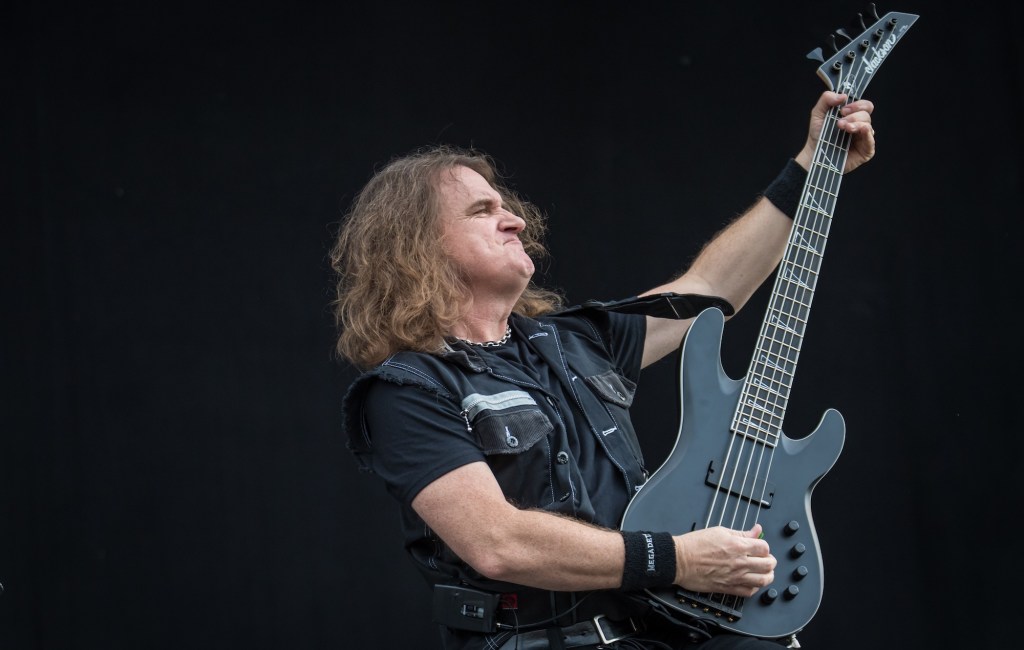
David Ellefson started from humble Minnesota beginnings, where from a young age he had a one-track mind for both music and rock ‘n’ roll.
Eventually, Ellefson’s passion for music saw the four-stringer move to LA to pursue his dreams, and begin a journey the veteran bassist still finds himself on to this very day.
Nestled in a hotbed that was the LA music scene, it wasn’t long before Ellefson struck a proverbial chord centered around meeting once discarded Metallica alum Dave Mustaine, and subsequently co-founding seminal thrash band, Megadeth. As a scene mainstay, Ellefson influenced both rock music and bass players alike with his work in and out of Megadeth.
In the years since, Ellefson has become as prolific as he is skilled within the music industry in aiding to form bands such as F5, Metal Allegiance, and Altitudes and Attitudes, while also contributing to artists such as Soulfly and Avian. Still, Ellefson’s newest project, The Lucid, might be his most exciting to date.
Below we discuss all things The Lucid, past musical projects, the scenes of both L.A. metal and thrash in the 80s, and so much more.
Joe:
Let’s talk about your new band, The Lucid. How did the band come together?
David:
It started a year and a half ago. Drew Fortier sent over a song, which was what would eventually become “Hair.” He sent it to me and said, “You want to put a bass down on this.” So, I just grabbed the bass and plugged in, and jammed to the song. Then I sent it over to him. Once I sent him that track, Drew asked If I wanted to play on another track. I said, “Yes,” and Drew ended up sending me much more than one additional track. I think he sent me thirteen more songs. He sent me all of them.
I didn’t know Mike Heller well. I met him briefly before through Fear Factory. Mike ended up being involved with the tracks Drew sent over as well. The three of us now had to decide who we should approach about singing on the album. Drew said, “I’m going to hit up Vin [Vinnie Dombroski] from Sponge.” I asked, “Do you know him?” He [Drew Fortier] goes, “Not really.” I told Drew, “I love your boldness. Let’s do it.” So, we hit Vinnie up, and luckily, he was game. Vin is a lovely soul. Very rock ‘n’ roll. He is a very clever lyricist.
Once Vinnie decided to join us, we decided we should meet up together and finish the rest of the recordings. Mike said, “Why don’t we go over to my place in L.A. if we’re gonna record more. We can just plug in and bro-down. Record it properly.” I think it was mid-July 2020. I was already in L.A. Drew [Fortier] came out from Indianapolis. Vin flew in from Detroit. We sat there and knocked through around ten tracks in two days. It was quite a workload in that amount of time. As we recorded the songs, I started to realize what a great producer and engineer Mike is.
Joe:
How would you describe the sound of The Lucid’s first album to someone that hasn’t heard it?
David:
It’s definitely a rock album. It may trend slightly into metal with songs like “Damned” and “Deaths of Despair”. It’s not a thrash metal record. It’s not a doom or a power metal record or any of that kind of stuff. I just think it’s just a straight-up hard rock record.
Joe:
Do you have any favorite songs or basslines on the album? If so, why are those your favorites?
David:
I really enjoyed playing the ballad, “Maskronaut.” Everybody acknowledges that it requires a certain skill level to play progressive stuff but to play only a few notes is just as challenging. Especially on a ballad, because you have to make sure you are not in the way of the vocals. It’s something that I didn’t do much of early on in my career. Then we [Megadeth] made Risk. I had to learn to play a whole different type of bass when we recorded Risk. I was in Nashville with Dann Huff, and we were under the gun. It was tough but an experience for sure. It certainly got my attention to the skill needed for baselines such as the one we did on “Maskronaut.”
Over the years, I played on a lot more records like that. Singer-Songwriter records and coffee-house records and things like that. I started going down to a local studio here and plugging in. Just playing with a lot of people. Those experiences really broadened my scope musically. Now when I play something like “Maskronaut”, I know how to play it. You don’t have to fill every space with notes and movement. You can hang notes and let them breathe.
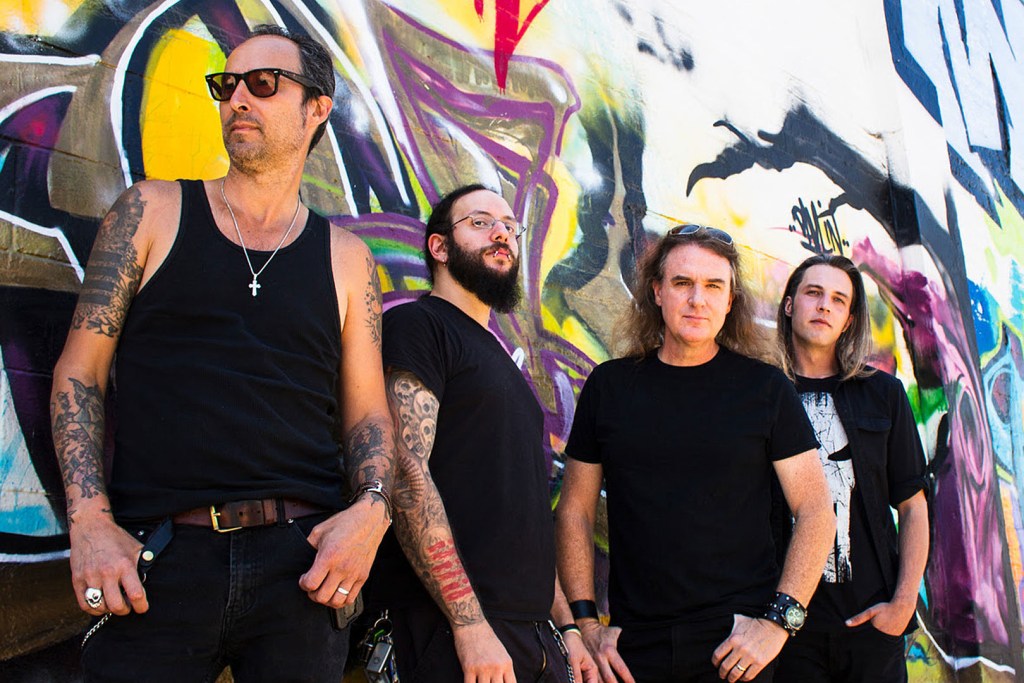
Joe:
What was the writing and recording process like for the band on this album?
David:
Drew had been working on a lot of these songs long before we all got together. He’s [Drew Fortier] got these bits and pieces of stuff that he brought in. One song was something he wrote when he was in Bang Tango, another was something that he wrote when he was working with Stephen Shareaux from Kick Tracy, and so on. I’ve known Drew a little bit as a musician, but I mostly just knew him as a friend. I began to appreciate what a great guitar player he is. He uses very inventive chord shapes. His fingers land on the board in places that mine normally don’t. It’s always enjoyable when you get in the room with someone who plays differently than you. That pushes you as a musician.
We let Vin choose from all the songs we had been working on. We figure people are listening to the singer, so will let him have that authority. The authority to pick the songs that he felt most comfortable with, and thought was the strongest of the bunch. That’s how we solidified the tracklisting for the record.
I’m not gonna lie, the songs aren’t super complex, but it was a lot of fun for me. In a one guitar band, as a bassist, you get to move. You get to do all kinds of stuff, that you can’t do in a two-guitar band. In a two-guitar band, the guitarists are the book ends. As a bass player, you move somewhere in between there. Your kind of anchored to that place with two guitars. In a one guitar band, you’ve got all this space. It’s fun to be able to walk lines and do some different stuff. There’s just the four of us in the room hanging out and playing together. There’s something about the spirit of that which translates to the end product. I remember recording the early [Megadeth] records like Killing Is My Business and Peace Sells the same way. We were all there together in the room. There truly is a spirit about that. It kind of uplifts the mood. It’s a human element.
Joe:
The Lucid has a few tour dates scheduled. Due to the events of the last few years planning a tour has been a difficult endeavor. However, we are wondering if a wider tour is part of the band’s plans?
David:
Everyone in the band is busy to varying degrees with other projects. Vin works every week. He’s always out doing something. Mike has his commitments to Raven and Fear Factory. We decided to pick a couple of weekends a few months away. See what that is like. If we enjoy doing it, we can always add more dates. But this way, we don’t need to commit to a long run. We can get our feet wet and have fun. Then take it from there. This whole thing has been a lot of fun. The last thing any of us want to do is have it become a laborious chore. I don’t want to be thinking, “God, I gotta go do that again.”
The band doesn’t want to tax ourselves by getting bigger than we are at this point. We’re all well-known guys, but it’s a new band. Our thought was to do an East Coast stint, then hit some spots in the Midwest. We’ve gotten offers in all four corners of the country and even overseas. However, once Omicron came in promoters got a little nervous. Hopefully, we got another year of this pandemic thing at most. Then hopefully, it’ll turn a corner. For now, we’re just doing little bits and pieces that make sense to do. That way, if it cancels or dates are rescheduled, it’s not the end of the world. It will be easy enough to accommodate.
Joe:
One past project that you were involved with was F5. The band released two strong albums of material in The Reckoning and A Drug for All Seasons. Is there any chance of new music from F5 in the future?
Dave:
We all talk and are in touch with each other. John Davis owns Scottsdale Guitar Academy. I helped Steve Conley get the gig in Flotsam and Jetsam. Dave Small was on the first record. He’s moved to Nashville. Jimmy DeGrasso played drums on the second one. Dale [Steele], the singer, and I are buddies. We chat all the time. In fact, I had him come up when I played a solo show, a couple of years ago. Dale came up on stage and sang with me. I had Steve on tour with me at one point. It’s a kind of musical brotherhood and we just always stay in touch.
If we have an opportunity to do it again, it’s something I would consider. I think a lot of people have gone back and discovered F5. I think they’re both exceptional records. They’re well written and well produced. I was just listening to The Reckoning about a month ago. I had it on in my car while I was driving around. I started thinking to myself, “Man, this was a good record.” One came out in 2005 and I think the other in 2008. It’s nice to know that they still live out there. Do you know what I mean? I think people are coming in and discovering those records now.
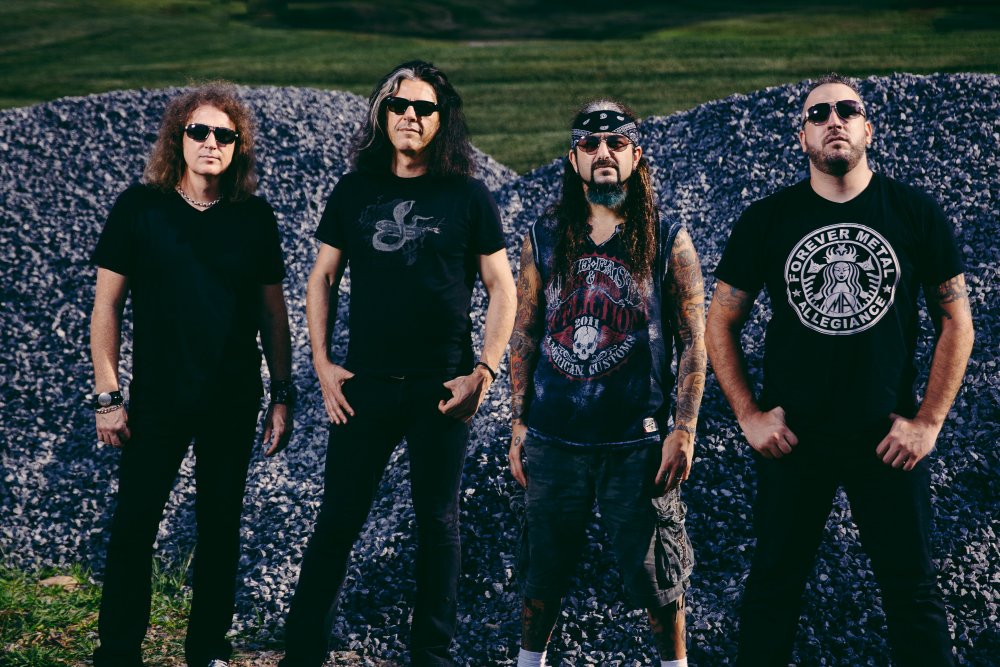
Joe:
Another really interesting project you were involved with was the metal supergroup Metal Allegiance. In addition to the “core four members,” a lot of additional musicians as well as singers joined for various songs throughout the two albums. The list includes numerous impressive names from the world of Hard Rock and Metal. How did that collective end up forming and what was that experience like? What effect did the experience have on your career going forward?
Dave:
We realized it’s more of an events-based group because of the number of people that need to come together. The hardest part of booking the band was explaining to the promoters who is in the band. There is the core four, as we call it, which include Me,[Mark] Menghi,[Mike] Portnoy, and [Alex] Skolnick. Then the promoters would always ask, “Who’s the singer?” It was always some work to solidify a lineup for the shows. We did have a run in South America that was great. Maybe, at some point, we could revisit that if it opens up again. It probably won’t be for another year. Creatively, it was really fun.
The band formed while we were on the Motörhead‘s Motorboat Cruise. That was our first debut rollout. We ended up playing that event because Megadeth had pulled out. I’d helped get us [Megadeth] on the cruise so I then had to get us off it. The promoter called me asking for help to fill the slot we had left vacant. I told him I had a good idea. I said, “We’re [Metal Allegiance] all going to be here. Everybody’s coming out on this cruise because it’s cool. It’s Motorhead.” So, we [Metal Allegiance] were up to bat.
It’s funny because it kind of started this whole concept of these all-star jams being incorporated into those types of events. We even did one on the Megadeth Cruise. I put together a KISS jam. Actually, the KISS jam was Frank Bello‘s idea. I called Frank up and said, “Dude, I’m putting an all-star jam together. I don’t want it to be like Metal Allegiance. I want it to be something different.” He [Frank Bello] said, “Well, you can always play KISS songs.” I thought, “God, that’s a fucking great idea.” Everybody knows KISS songs, you know. We put together a big KISS jam. A lot of that came out of Metal Allegiance.
Working in the Rock and Roll Fantasy Camp prepared me for the experience of Metal Allegiance. I got called in to be part of the tenth anniversary over in Las Vegas with [Roger] Daltrey, Slash, and Mark Slaughter amongst others. I went out and did the tour with the camp. Every day we would come into town and put a new band together. Then go on stage that night as the opening act for Kings X and Extreme. I remember Kip Winger remarking that he had never worked so hard in his life. Every day we were putting together a new band with these campers. Some nights I was playing guitar, other nights I was singing or playing bass or even just playing tambourine. It taught me how to be flexible. Just fill in where needed.
Fast forward to Metal Allegiance and I was confident in doing what was needed in that type of situation. It was fun working with guys who had a lot of experience with cover songs and had a pretty deep playbook. They knew a lot of covers and it was fun to play them. While we were on the Motörhead Cruise Dave Portnoy said, “Why don’t we go to my place when this is over. Write a record. That’s how I do most of my records. Everybody stays at my house.” That’s how we wrote the first Metal Allegiance record. It was Camp Portnoy. We were camping at Mike’s house [laughs]. I remember one time we were standing in the kitchen with his wife, Marlene. It was getting late, and we were kind of tired. We thought maybe we might call it a night. Marlene goes, “You fucking pussies. Get downstairs. Write some songs.” I thought, “Wow. All right. The wife of the house says get down there and play loud [laughs].” The Portnoy hangs are a ball. It’s musical and it’s a good time over there.
Joe:
Tell me about your musical beginnings? How did you get started with music and the bass?
Dave:
KISS was my Beatles right behind Cheap Trick. Other bands that inspired and influenced me back then were Styx, BTO, Foreigner, Sweet, Aerosmith, and Ted Nugent. Those of us who grew up in America kind of started with what we heard on the radio. Besides the radio, we really only had our older brothers, or whoever was around to help influence us. That’s where it started. Just listening to all that music. I mean, when you see something like KISS, it’s so big. It’s like a fantasy. I wanted to do something like that. It looked like a lot of fun. Of course, everyone around you says you are full of it. That you’re dreaming, you know. I grew up on a farm in a small town. But once people saw that I was serious about it, which was right out of the gate, they got behind me.
I started playing in jazz band at twelve years old. I was getting asked to play with the older kids. They were calling me up for gigs. They were saying, “Get that Ellefson kid in here. He can play.” I discovered that by playing bass I could find an in. There were no bass players around. Who the hell wants to play the bass, right? [Laughs]. Everybody wanted to be a singer, a guitar player, or play the drums. They wanted something kind of flashy. I was watching other bass players. I was watching Gene Simmons, Geddy Lee, and Steve Harris. These guys were the leaders of the band. They were up on the forefront. I wanted to be those guys. I’m not a stand-in-the-back bass guy. I’m an up-front guy. That’s kind of how I’ve always been. I’ve pretty much always put my bands together. I’ve been the kind of guy to start bands.
Joe:
What was the experience of coming up in the L.A. metal scene in the early 80s like? What do you remember about it? How do you feel it compares to the current L.A. music scene?
Dave:
When I got there in 1983, I moved into this apartment up on Sycamore and Hollywood. I used to jam at my place there with Dave [Mustaine]. We were starting Megadeth and getting Gar [Samuelson] and Chris [Poland] in the band. There was just a lot of music around. This is where we hung out around the time of the So Far, So Good…So What! tour. It’s where we wrote the beginning of “Holy Wars […The Punishment Due].” Slash would come over and jam with us too. That was as big as our life was at that time.
Metallica was abuzz on the West Coast. They were recording Kill Them All at the time. I met Dave about six weeks after he was out of that band [Metallica]. Back then, that whole street was all kids like me who had moved from somewhere else to try to make it as a musician. rock ‘n’ roll and metal were all over the radio. Steve Lukather was a favorite, you know, with The Tubes. Of course, Eddie Van Halen was huge. Randy Rhodes had made his impression with Ozzy. Autograph, they had their guitar player, Steve Lynch. He was teaching over at M.I. [Musicians Institute]. The Toto guys would do drop-ins over there. The Sunset Strip was booming. Mötley Crüe was taking off and Quiet Riot was number one on MTV. It was a very musical town back then. That was the scene. That was what the landscape looked like.
I used to feel like all these different things were happening around L.A. I don’t sense that at all anymore in L.A., you know? It doesn’t seem like rehearsal rooms are booming. It isn’t the sort of action-packed town of music it used to be. It seems like music is the backdrop to other things. It’s funny, I was just there. I was out there for about a week working on a handful of things. I was driving around and reminiscing. I drove around by Cherokee and Fountain. I lived in an apartment around there at some point. I drove by there, and I took a picture of it. I would see something and think, “God, it’s not at all like it was back in 1983.” It wasn’t in a remorsefully nostalgic way though. I’m not that guy at all. I believe that life moves forward, and you have to embrace the new.
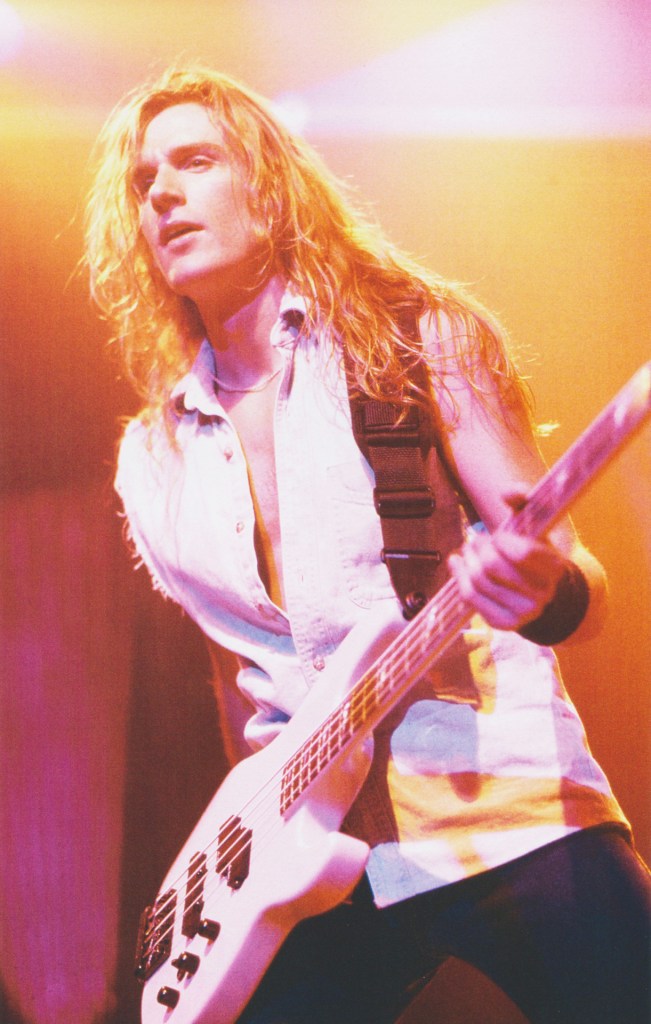
Joe:
As someone who was a member of an integral first wave thrash band, paint a picture for me of what the burgeoning thrash scene was like not just in L.A. but the greater west coast area.
David:
We didn’t call ourselves “thrash” back then. I think Malcolm Dome, over in the U.K., came up with the term “thrash.” I guess it plays to the Venice Beach skater. That’s kind of where that whole thrasher thing came from. He [Malcom Dome] is the one that started calling us the “Big Four” of Thrash. The four of us were Slayer, Megadeth, Anthrax, and Metallica. We were the four bands that started on these indie labels and made the jump to the major label. We got out there and started playing the arenas. It was music that people wanted to hear.
I noticed when we played San Francisco the Punks would all be there. You would see the Skinhead Punks but also the mohawks with the whole nine. But you would also see the Rivetheads as well as the heavy metal guys wearing their Iron Maiden and Motörhead shirts. They all coexisted in the same community. That was the first time that that really happened because those types were previously very divided.
It’s also worth noting that back then thrash was not that popular in L.A. I mean, there were fans for it, but they were always in the outlying areas of the city. We never played the Sunset Strip. Dave [Mustaine] always said, “We’re never gonna play those types of places.” We would always play dilapidated punk rock theaters in the outlying areas of L.A. Our agent, Andy Summers, came from a punk rock background and he would have us play out in those areas. By this time, Metallica had relocated to San Francisco to get Cliff [Burton] in the band. They had a whole scene up there. That’s why Dave [Mustaine] decided we shouldn’t debut Megadeth in L.A. We decided to go up to San Francisco because that’s where the bigger fan base was for the type of music we were making.
Joe:
I have heard that originally, as a bass player, you started by playing with just your fingers, and evolved to the pick due to the nature of the music you were playing. What’s your philosophy like in terms of playing the bass and using different styles?
Dave:
I do both. If I’m playing “Maskronaut” on The Lucid record, I’m not playing with a pick. It’s too much for something like that. It’s too aggressive. I need stroking and pulling of the string for that type of song. I want to pull it out softly and elongate the note. When I’m playing thrash metal, I need to get some teeth on and get right upfront. Get in people’s faces and snarl at them. [Laughs]. It’s just different approaches for different types of music.
I have not done a lot of like slapping and popping. I used to do it in jazz band and stuff, and I’ve always admired people that play that way; Louis Johnson, Victor Wooten, and the like. The guys that could do that shit are amazing. It’s like they have another bone in their wrist or something. It’s clever and it’s cool. It fits in a certain era and a certain style of music.
I have always thought if playing with your frickin’ toes gets you there, do it. [Laughs]. Whatever it takes to get the music out of the instrument. To me, there’s no one way to do it. Whichever way you can get it to sound like it was heard in your head, to me, that’s how you play it.
Joe:
What does the future hold for David Ellefson and The Lucid? Any other new musical projects you can speak of?
David:
We shot some music videos back in December. We put one out for “Deaths of Despair.” We talked about doing one for every song, but we shot a few of them for now. Those will be coming out leading up to the shows in May.
In this day and age, everything doesn’t always have to be a full-length album either. It’s especially true once you’ve made a full-length album. At that point, you can pop singles out and do different things. Things to just kind of keep the narrative going. I’ve always got a few tricks up my sleeve. I like to create. I like to write. I like to work on stuff. There’s always stuff that’ll be coming out. That’s just the fun of doing what we do.
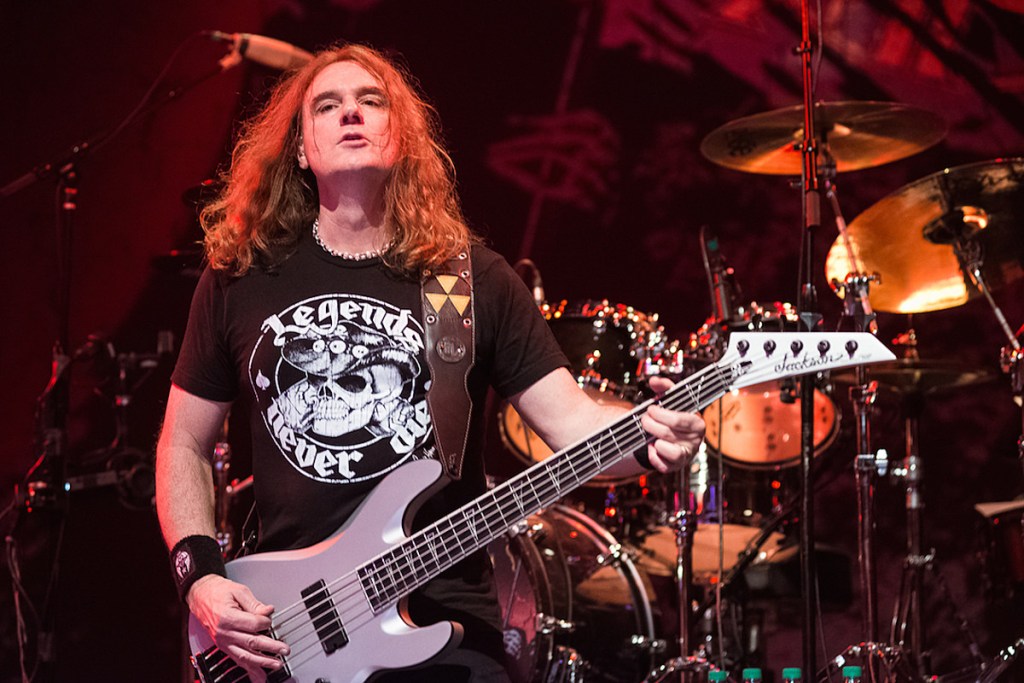
Interested in learning more about the work of The Lucid and their debut self-titled album? Hit the link below:
Be sure to check out the full archives of Records, Roots & Ramblings, by Joe O’Brien, here: https://vwmusicrocks.com/records-roots-ramblings-archives/
